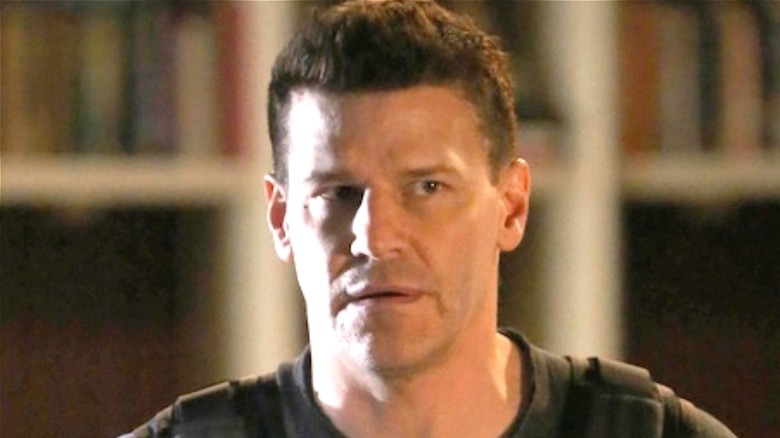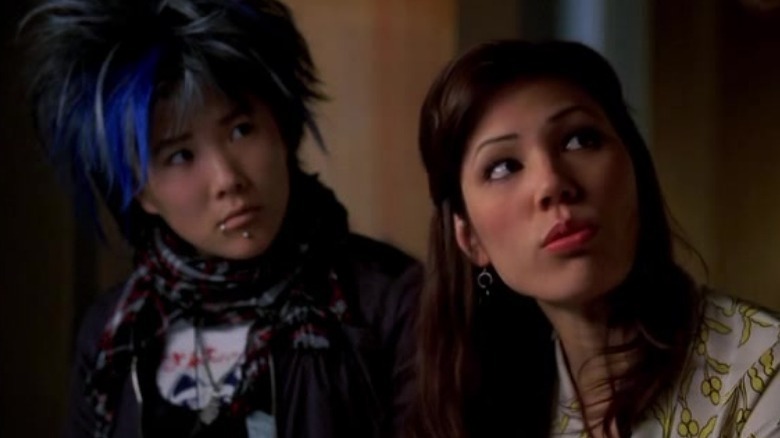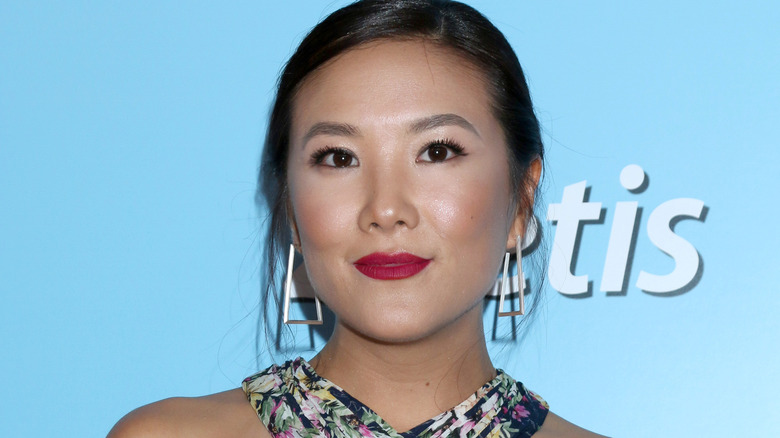The Bones Scene That Went Too Far
One of the best things about "Bones" is the even-handed, accepting nature of the Jeffersonian staff when confronted with lifestyles they've not previously considered. The pony play episode was surprisingly respectful, the (poorly titled) episode about a trans victim worked hard not to misgender her, and the episode about mail-order brides manages to both honor ghost weddings as a meaningful practice and decry those who would exploit Chinese immigrants.
It makes sense that Temperance Brennan (Emily Deschanel) would keep an open mind when thrust into a new culture. Brennan is a forensic anthropologist, but you don't get to that profession without studying some cultural anthropology along the way. She knew a lot more about other cultures than her colleagues, and she wasn't afraid of shoving that fact into people's faces. She was a smart, confident woman who didn't pipe down, making her one of the strongest female protagonists to come out of television in the 21st century.
Observing without judgment is a central tenet of anthropological study. FBI agent Booth (David Boreanaz), on the other hand, usually has a more reactionary view of the things he's seeing. But to his credit, he didn't feel put down when Temperance knew more than him. He accepted it as a fact, but these two viewpoints still frequently came in conflict, with the show eventually coming down in Bones' favor most of the time. But one time the show just completely whiffed it.
Bones ignored nonbinary identities in Season 4
Season 4's Episode 22, titled "The Girl in the Mask," is wild to behold after years of gender discourse. In the episode, a Japanese forensics expert, Dr. Haru Tanaka (Ally Maki) travels to DC to help Booth investigate a murder. Dr. Tanaka dresses very androgynously and the squints (mostly Angela) obsess over what their "real" gender is.
The scene that goes too far lands near the end of the episode. Fed up with not knowing, Angela (Michaela Conlin) hugs Dr. Tanaka until they have a ... biological reaction to being so close to a beautiful woman. Angela thus concludes that Dr. Tanaka is a man.
Not only is this extremely invasive, but the team ignores the possibility that Dr. Tanaka could be agender or nonbinary. Nobody just asks Dr. Tanaka what their pronouns are, which would be the polite thing to do. (Notably, the actor playing Dr. Tanaka is a woman). Brennan does an excellent job of never gendering Dr. Tanaka, always referring to them by their full name to obviate the need for gendered pronouns at all.
The misgendering of Dr. Tanaka has its roots in orientalism. Sweets (John Francis Daley) says Dr. Tanaka belongs to the "kei" subculture, presumably referring to what CNN labeled "jendaresu-kei (or 'genderless style')." The team essentially dismisses Dr. Tanaka's gender expression as a "weird" Japanese thing. But plenty of people all over the world identify as nonbinary, and what could have been an excellent opportunity for representation on TV just ended up being problematic and disrespectful.
Actress Ally Maki explains how the scene emphasizes the cultural divide between Japan and America
"The Girl in the Mask" only came out in 2009, which isn't that long ago. Yet, it manages to ultimately damage androgynous representation on-screen by insisting upon the significance of assigning everyone a binary gender role. In an interview after the episode came out, Ally Maki, who portrays Dr. Haru Tanaka, spoke about how that division emphasizes a clear cultural divide between Western and Eastern sensibilities.
Maki discusses taking on the role, such as how she was hesitant to audition and how the creative team lowered her voice register in post-production. She also provides a different type of insight into the character and how, strangely, the episode actually confronts Western culture's ideas on gender. Maki explains, "I thought it was hilarious that the three [characters] wanted to know, 'Man or woman, man or woman.' It was so important to them."
Maki, who is Japanese-American, goes on to clarify how Japan is far more accepting of androgynous identities that don't neatly fit into binaries. She goes on to state, "In Japan, you know, it's like no one would really care. You're walking down the street, and it wouldn't even be an issue." Whether the episode succeeding in getting that idea across is open to interpretation, but it's clear Japan has been ahead of the curve when it comes to accepting individuals of all gender identities.
"It just points out how Americans, it's so important for them to [specify gender]," she concludes. "And in Japan, you know, not a big issue at all." Few would argue the episode could've done more to be more inclusive of non-binary identities, perhaps by casting a non-binary actor in the role. While television still has a long way to go with greater LGBTQ+ representation, we're in a much better place today than we were even 10 years ago.


